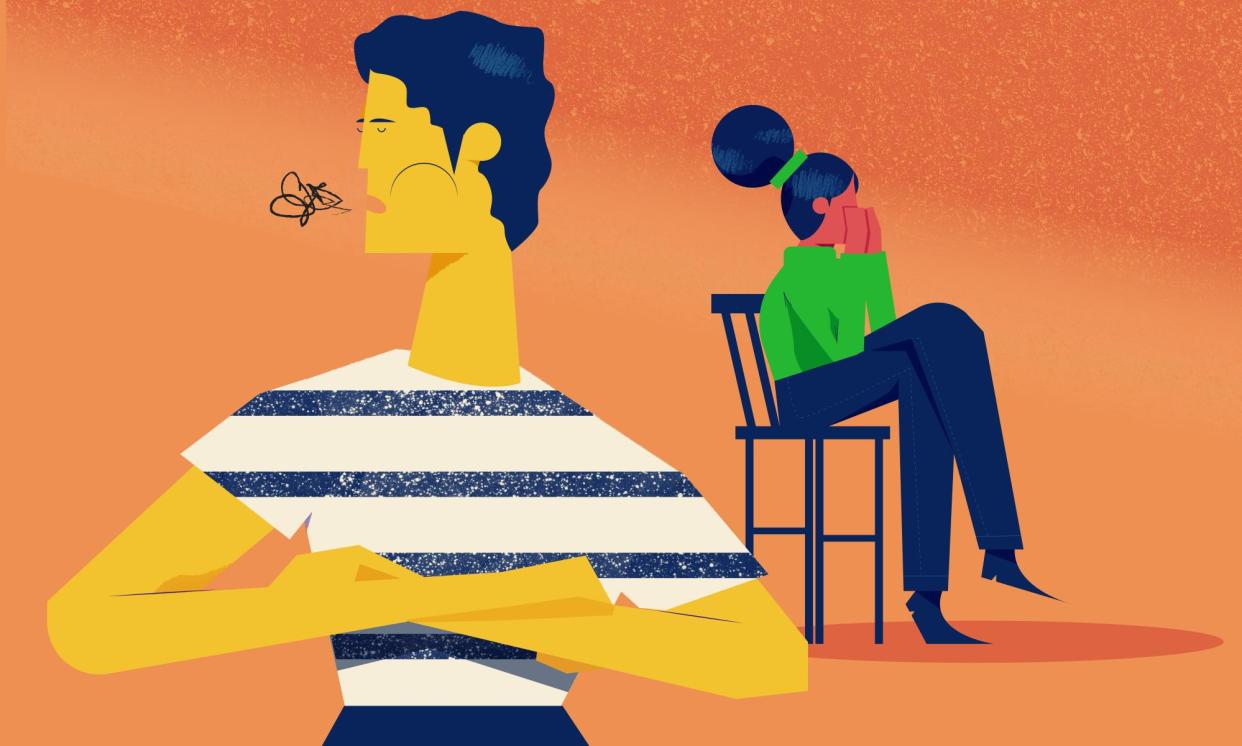My brother bullied me, which has had a lifelong impact. Can I build bridges with him now?

When I was a child I was bullied by my older brother. I am 41 now and I think this has really affected me throughout my whole life. He always picked on me, called me stupid, fat, ugly, worthless and told me that I was never good at anything. This went on every day until I moved abroad to live with my grandmother at the age of 17.
My parents never made me feel protected and never punished him or made him stop. I resent them for it and feel let down by them. I’ve spoken to my mum a few times in recent years, but it’s a bit too late now and I don’t want to make her feel guilty when she can’t turn back time.
My brother’s life isn’t easy now. He is in a difficult marriage and has a child with additional needs child. Our relationship is not great and we don’t live in the same country, so we only see each other (always around family) maybe once or twice a year. I feel sad that we are not close, but at the same time I don’t think things can be improved because of his complicated life circumstances. I also resent him and I feel sad that I was subjected to this treatment for so many years and that it has really affected me.
I am not sure if I need therapy to move past it. How can I move forward?
You don’t discuss what your brother is like to you now, only that you are “not close”. One of the most useful things I ever learned was that siblings act out how they feel, and can project any resentment and feelings of inadequacy on to a (usually) younger sibling. So all those things he called you was probably how he felt at the time. Does it make it any better? Not really: you still had to endure it. But I find context, in family history especially, is useful to see things as less personal.
Many parents don’t see the abuse between siblings that is happening right under their eyes, either because they think it’s normal or they don’t recognise it. Yet sibling bullying, as you have seen, not only happens but has profound effects. It was the responsibility of your parents to manage your childhood sibling relationships, so I don’t blame you for feeling angry with them. Standing by and doing nothing would have compounded how you felt; one of the hallmarks of trauma is feeling isolated.
I am not sure how much you can build on your relationship with your brother – I would not want you to be hurt more. He is really the one who should be building bridges and saying sorry.
If you didn’t see your parents stand up for you, then you would have thought it’s OK to be treated like this
John Cavanagh
I went to UKCP-registered John Cavanagh, who works extensively with families. “Years of being called those things is emotional abuse – of course it would have affected your identity. You were also seeing how authority was dealt with, or not. If you didn’t see your parents stand up for you, then you would have thought it’s OK to be treated like this. Silence in this situation is violence.”
Cavanagh felt it would be helpful to talk to your parents: “Saying how you feel is part of the healing.” It’s not really about how they can’t turn back time, but about your experience, one hopes, being validated and heard. As for feeling guilty: remember, we often feel guilty when others aren’t doing the work they should in a situation. You have nothing to feel guilty about.
Cavanagh and I discussed how wonderful it would be if your whole family could have family therapy, but I know this is a rare thing, perhaps even rarer that everyone takes responsibility for their own behaviour. I absolutely think you would benefit from your own therapy.
Cavanagh said: “If you’ve learned your place in the world through negative language, there is no miracle cure to undo years of abuse. But I wonder if you could start to think about your relationship to praise: how do you respond to it? Do you bat it away, or really allow it to sink in and start to believe you are good enough; you are worthy of love.”
Please seek out some longer-term therapy, and hopefully you have good people around you who reflect you as you really are. Personally, I would attend to my own boundaries first, before approaching family. They don’t define you any more. You do.
• The podcast I did on siblings remains the most listened to so far, perhaps for a reason.
• Every week, Annalisa Barbieri addresses a personal problem sent in by a reader. If you would like advice from Annalisa, please send your problem to ask.annalisa@theguardian.com. Annalisa regrets she cannot enter into personal correspondence. Submissions are subject to our terms and conditions.
• Comments on this piece are premoderated to ensure the discussion remains on the topics raised by the article. Please be aware that there may be a short delay in comments appearing on the site.


